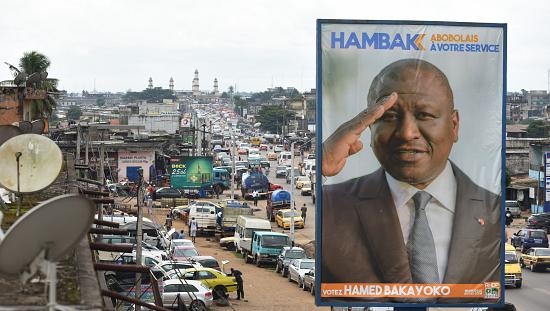Since 2018, the political leaders of the (FABI) party have been falling dead, led by Abderrahmane Sangaré. In 2020, Colonel Isaac Wattara, known as “Wataw”, fell into a struggle with illness. He was a prominent leader in the military security establishment. Months later, the political leaders of the (RADHEB) party fell, starting with former Prime Minister Amadou (Ahmad) Gon Coulibaly, and passing through the sudden death of Al-Hajj Seriki (Sidiq) Jakte, Minister of the Interior, in the circumstances of the October 2020 presidential elections, and reaching the death of Prime Minister Ahmed Bagayogo on Wednesday, March 10, 2021. This means that Côte d’Ivoire has lost three sovereign ministers in less than two years. Hence the question: Is the death of first-class leaders in political parties and groups in Côte d’Ivoire a case or a phenomenon, or has it become a crisis that must be considered carefully to know the dimensions and repercussions, to correct the path of democracy, and to preserve the gains of peaceful coexistence and economic achievements? In this article, we try to address these dimensions and repercussions with some brevity Given the nature of the situation
Dimensions
First: The death of these Ivorian leaders, each of whom provided services, more or less, to the Ivorian people, and worked under the banner of loyalty to the country, and commitment to the laws of his place of service, is a loss for the Ivorian state and the Ivorian people are the losers before their ethnic clan and political family.
Second: Those who died could have been president of the state, due to the qualities they possessed (seriousness, loyalty, generosity…) even political opponents attested to this
Third: These deaths and their circumstances are unprecedented in Ivorian political history, and therefore information must be dealt with with a degree of accuracy, clarity and patience
Implications
First: Young people’s reluctance to enter the political arena
Political work (serving the needs of citizens) is one of the most honorable works, and the fastest to penetrate society, and thus gain its support and loyalty. Ivorian democracy has given an opportunity for the emergence of new, mostly young leaders who care about the concerns of society and carry visions and ideas for political reform, but the death of leaders in this way, whether they are politicians or military, represents a warning bell and an alert to young people that entering politics means approaching sudden death, and Ivorian culture teaches that families and parents wish long lives for their children, and therefore no family will allow its child to be led to death They are looking
Second: An introduction to the decline of Ivorian democracy
Contemporary Ivorian democracy has been keen to choose its mechanisms in a way that has given it a degree of attractiveness and development, meaning that there are presidential elections, legislative elections, Senate elections, municipal elections… and other constitutional arrangements that have brought new positions such as: Vice President of the Republic
The death of political, security and military leaders in this way may constitute an introduction to doubt and hesitation in: How valid are these positions in the state, at least during this period? And then arousing the desire and need for an era before those positions, and perhaps in the folds of the dialogue and proposals it may be mentioned: What is the point of the prime ministership if it is a position surrounded by a degree of secrets and caution? This is on the one hand, and on the other hand, the sudden death of leaders qualified to lead the state may be used as a pretext for the president to cling to power, or the lack of peaceful transfer of power within his party, or the mistake in choosing the right man in the right place, or not voluntarily giving up as he did before despite his old age, under the pretext of the absence of leaders, or the absence of consensual figures… And everyone knows that President Watra’s candidacy in the October 2020 presidential elections was justified with such justifications, and this may be from the gestures and suggestions of individuals from the dialogue within the party, and there is no doubt that these justifications and others are aware of the constitutionality of some of them, but there is what is better for reconciling hearts, and tampering with these positions from these starting points and in an unconstitutional and contrary manner, and from the indicators of the decline of democracy, should not be approached. Third: The political stumbling of the (RADAB) party’s strategy
There is no doubt that the death of the first-rank leaders of a particular party or alliance confuses the party in its strategy and steps, and thus may affect the political performance and then the political support and loyalty to the party, especially in the case of Côte d’Ivoire, where democracy is in the process of being built and civil society is weak
Fourth: The control of illusion and slander over ideas
The death of the political leaders in the (RADAB) party was taken by some media institutions and other individuals to incite many ethnic sentiments, activate political divisions and then confirm the injustice of other political, security and military parties, which are illusions and slander that almost control ideas and interact with behaviors, and its danger lies in the fact that it may represent a defect in the cohesion of the ruling alliance, or further deepening the division between the government and the opposition, and it is known that the government and the opposition have made considerable progress in the political dialogue, which led to the opposition’s participation in the legislative elections on March 6, 2021, which is the first of its kind in contemporary Ivorian political history, and in either case It was, then, we should not deal with ideas that deepen the spirit of division, revenge and fragmentation in the country of elephants, the country of peace and brotherhood.
Fifth: Re-spreading negative ideas
If it is proven that entering the arena of political work or assuming a sovereign position is surrounded by a degree of caution, this may lead young people to believe in practicing negative acts (magic, sorcery) as a fortress for themselves, and it is known that these acts weaken society and then corrupt it morally.
Conclusion
Political work is an honorable act, and every citizen has the right to engage in it if the conditions of legitimacy stipulated in Ivorian laws and legislation are met. Therefore, these deaths or others should not represent an entry point for individuals, especially young people who bear the concerns of society and reforming the social and economic situation, to compete in it in a commendable competition committed to the law. Then, these deaths did not
Dr. Amina Al-Arimi
An Emirati researcher specializing in African affairs.

